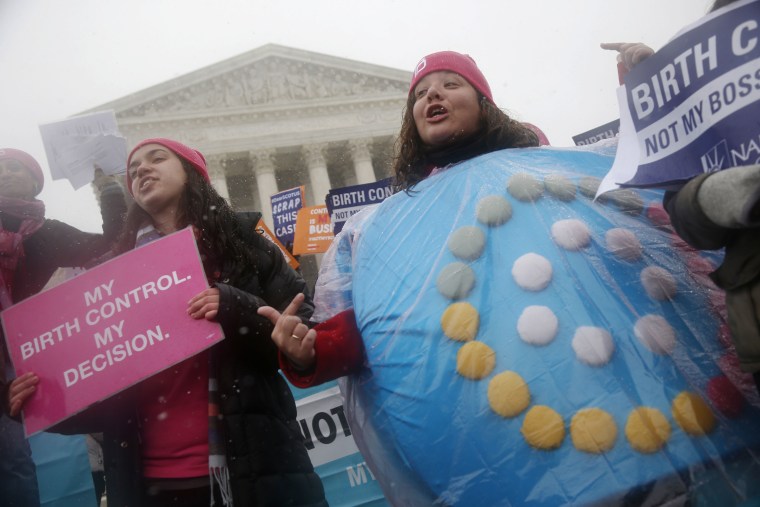No one can argue that birth control has, and continues to provide women the power to decide their own destiny. Yet this year’s Women’s History Month comes at a time when many in our nation want to repeal or limit a woman’s right and ability to access affordable contraception, a basic element of women’s health care.

As the CEO of The National Campaign to Prevent Teen and Unplanned Pregnancy, my focus and indeed a focus of our organization—is ensuring that all women—regardless of their race, ethnicity, or socio-economic status—have the power to decide if, when, and under what circumstances to become pregnant. Birth control is a key part of that equation. Nearly every sexually active women uses birth control at some time in her life. As such, birth control plays a key role in ensuring that women can live life on their own terms.
RELATED: Women's Strike: 'A Day Without a Woman' Events Take Place Worldwide
Birth control has been a game changer for women’s equality. Consider that legal access to effective contraception happened just over 40 years ago. In those four decades, women have experienced revolutionary opportunities to take real control of their reproductive lives. Take, for example, workforce development; before women had access to safe, effective birth control, there was not a single female CEO of any Fortune 500 company—there are now 21. (And yes, we still have work to do.)
Bloomberg Businessweek recognized birth control as a top economic driver for women and one of the most transformational developments in the business sector in the last 85 years. According to a University of Michigan study, one-third of the wage gains women have achieved since the 1960s are the result of access to oral contraceptives. Prior to the advent of oral contraceptives, women earned 60 cents for every male dollar. While it’s still not an even playing field, women now make 78 cents for every male dollar. Furthermore, research suggests a 3% increase in weekly wages and a 9% increase in career earnings for each year of delayed childbearing, even after accounting for differences in other background characteristics that could affect a woman’s earnings.
Economists find that women do significantly better in the labor market when they can better time their entry into parenthood. Melinda Gates put it best when she said, “It’s no accident that my three kids were born three years apart—or that I didn’t have my first child until I’d finished graduate school and devoted a decade to my career at Microsoft. My family, my career, my life as I know it are all the direct result of contraceptives.”
But birth control is more than just earning potential and the chance to lean in; it makes so much else possible. The CDC recognized birth control as one of the top 10 public health achievements of the 20th century and it is clear to see why. Birth control gives women the ability to plan, prevent, and space pregnancies, which is directly linked to benefits to women, men, children, and society. Those benefits include more educational and economic opportunities, healthier babies, more stable families, and reduced taxpayer burden. Since birth control has become widely available, there has been a staggering increase in women’s wages, an increase in the number of female college graduates, and dramatically improved family wellbeing.
Clearly, phenomenal progress has been made and national polls suggest that the overwhelming majority of people in the United States—across all political, economic, racial, and ethnic spectrums—support policies that provide women with access to contraception.
Women have come incredibly far since the years that birth control was legalized, but progress is not victory: those 21 female CEOs hold only 4.2% of CEO positions in America’s 500 biggest companies. In addition, there are millions of women who lack access to birth control; recent research conducted by The National Campaign shows that in the U.S. almost 20 million women eligible for publicly funded contraception live in contraceptive deserts. If moves to repeal the Affordable Care Act and eliminate or weaken the Title X Family Planning Program are successful, millions more women could lose access to birth control.
So today, as we celebrate Women’s History Month, let’s all thank birth control for all it has made possible for us and our families. In fact, I ask you to share your thoughts on social media using the #ThxBirthControl hashtag and pledge to have a conversation about all that birth control makes possible with friends, family, constituents, neighbors, and most importantly, those who represent you in Congress. Let’s remind everyone that deciding if, when, and under what circumstances to get pregnant is one of the most important life decisions a woman can make.
Ginny Ehrlich is the CEO of The National Campaign to Prevent Teen and Unplanned Pregnancy.